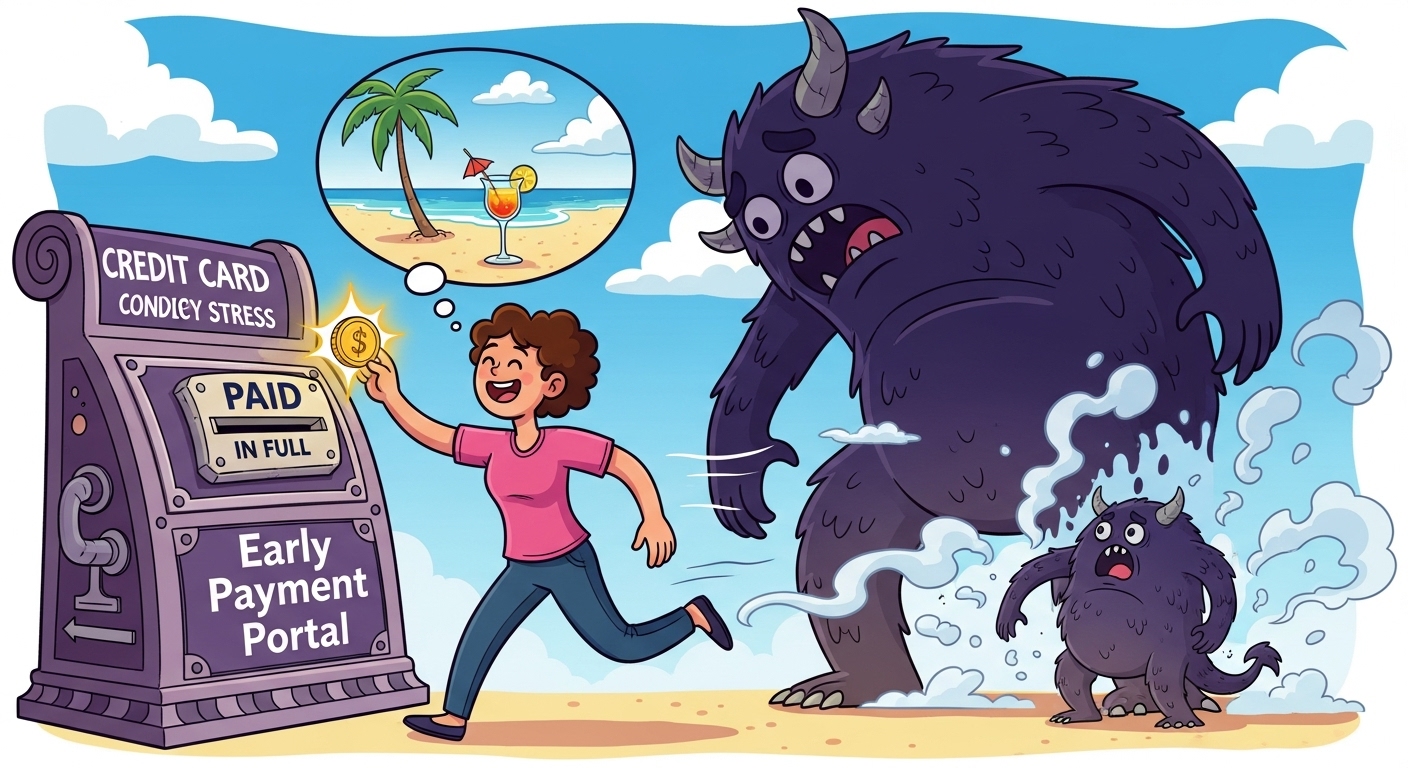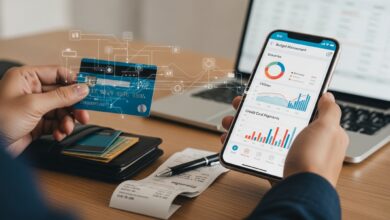What Happens If You Pay Off Your Credit Card Early?

Credit cards are powerful financial tools — they offer convenience, rewards, and flexibility. But they can also become expensive if balances aren’t managed properly. Many people wonder:
“What happens if I pay off my credit card debt early?”
Does it help your credit score? Does it save you money? Or does it make no difference?
In this article, we’ll explain everything you need to know about the benefits (and a few potential drawbacks) of paying your credit card debt early — and how to do it the right way.
The Basics: How Credit Card Billing Works
Before we look at early payments, let’s quickly review how credit card billing cycles operate.
Each credit card has:
- A billing cycle (typically 28–31 days)
- A statement closing date (the end of that cycle)
- A payment due date (usually 21–25 days later)
After the statement closes, your issuer calculates what you owe — that’s your statement balance.
You can:
- Pay the full balance (to avoid interest),
- Pay the minimum balance (to avoid late fees but incur interest), or
- Pay any amount in between.
When you pay before the statement closes, it’s considered an early payment — and it can actually work to your advantage.
What Does “Paying Off Early” Mean?
Paying off your credit card early means:
- You make a payment before your statement closing date, or
- You pay your balance in full before the due date (sometimes immediately after spending).
This strategy can impact your interest charges, credit utilization, and credit score — all in positive ways.
Benefits of Paying Off Your Credit Card Debt Early
Let’s look at the key advantages of paying your balance early:
1. You Save Money on Interest
If you carry a balance from one month to the next, interest builds up daily.
By paying off your card early, you reduce the average daily balance, which directly reduces the total interest charged.
Example:
If you owe $2,000 at a 20% APR, interest is calculated daily (about 0.055% per day). Paying half ($1,000) two weeks early can save several dollars in interest that month.
Bottom line: Early payments = less interest.
2. It Improves Your Credit Utilization Ratio
Your credit utilization ratio — how much of your credit limit you’re using — is one of the biggest factors in your credit score (about 30% of it).
Formula:
[
\text{Utilization} = \frac{\text{Balance}}{\text{Credit Limit}} \times 100
]
If you have a $5,000 credit limit and your balance is $2,500, your utilization is 50%.
If you pay early and bring it down to $500, your utilization drops to 10% — which is ideal for a good credit score.
Credit bureaus usually see your balance as of the statement closing date, not the due date.
That’s why paying early can make your credit report look cleaner and boost your score.
3. It Can Boost Your Credit Score
Because early payments lower your utilization, your credit score may rise — especially if you had a high balance previously.
This can be helpful if:
- You’re about to apply for a loan or mortgage,
- You want to increase your credit limit, or
- You simply want a healthier credit profile.
4. You Build Better Financial Habits
Paying early helps you:
- Stay organized and avoid last-minute stress,
- Prevent late payments or missed due dates,
- Develop strong financial discipline.
It’s one of the simplest habits that separates financially stable people from those who struggle with debt.
5. You Avoid Going Over the Credit Limit
If you make frequent purchases throughout the month, your balance can climb quickly. Paying early clears some of that balance, freeing up credit for other expenses and helping you avoid over-limit fees.
Are There Any Downsides?
While paying off your card early is generally positive, here are a few points to consider:
- It doesn’t increase rewards — paying early doesn’t earn extra points or cashback.
- Cash flow management — if you pay too early, you may have less cash available for other bills or emergencies.
- Timing for rewards or statement credits — in rare cases, early payments might delay reward postings until the next cycle.
However, these are minor issues compared to the long-term financial benefits.
Example: How Early Payments Work in Practice
Let’s say:
- Credit limit: $5,000
- Average monthly spending: $2,000
- Statement closes on the 25th of each month
If you pay $1,000 on the 15th, and another $1,000 before the due date, your reported balance is $0.
✅ Your credit utilization = 0%
✅ You pay no interest
✅ Your credit score may increase
This is how early payments can strategically help both your wallet and your credit report.
Tips for Paying Off Credit Card Debt Early
- Know your statement date and due date
→ Plan payments strategically before the statement closes. - Pay multiple times per month
→ Reduces utilization and prevents high balances. - Set up automatic payments
→ Avoid late fees and maintain good credit standing. - Monitor your credit report
→ Ensure payments are being reflected correctly. - Avoid making large purchases right before the statement closes
→ They may inflate your reported balance even if you pay soon after.
Quick Comparison
| Payment Timing | Interest Charged? | Credit Utilization | Credit Score Impact |
|---|---|---|---|
| After due date | ✅ Yes | High | Negative |
| On due date | ❌ No | Normal | Neutral |
| Before statement closes | ❌ No | Low | Positive |
Final Thoughts
Paying your credit card debt early is one of the smartest financial habits you can develop. It:
- Saves you money on interest,
- Improves your credit score,
- Keeps your utilization low, and
- Builds strong money management discipline.
There’s virtually no downside to paying early — as long as you manage your cash flow wisely.
So if you want to strengthen your financial health, start by paying your credit card bill early. Your future self — and your credit score — will thank you.
Summary Table
| Benefit | Description |
|---|---|
| Saves interest | Reduces daily balance and total charges |
| Boosts credit score | Lowers utilization before reporting |
| Prevents late fees | Payments clear early |
| Builds discipline | Encourages consistent financial habits |
| Frees up credit | Keeps balance low for new purchases |
